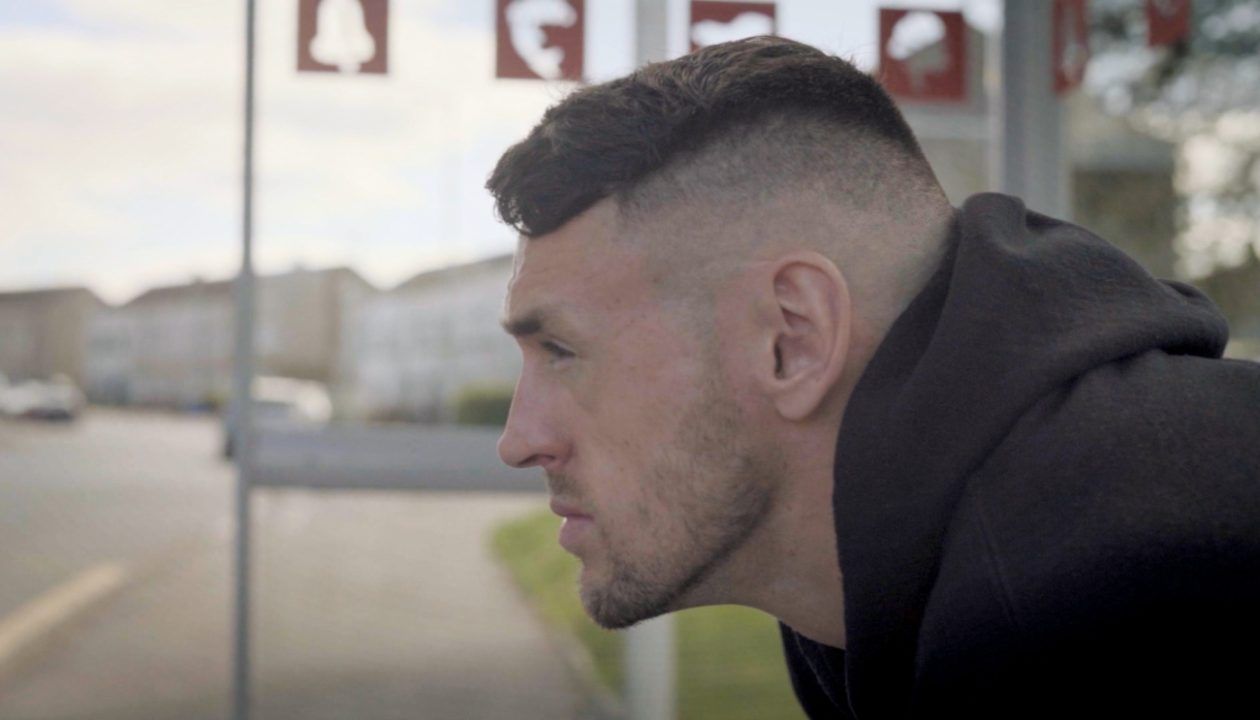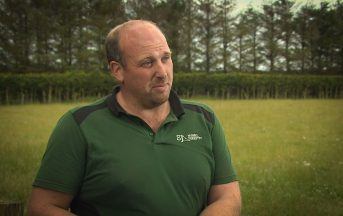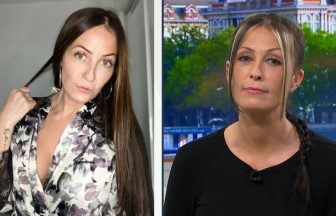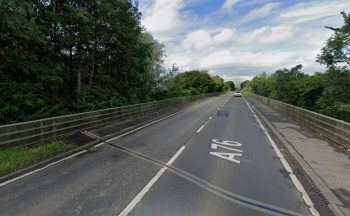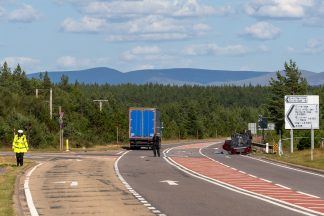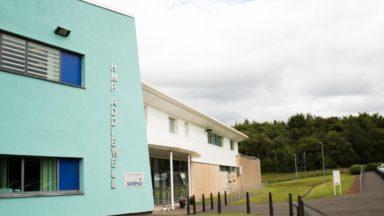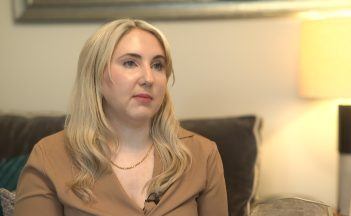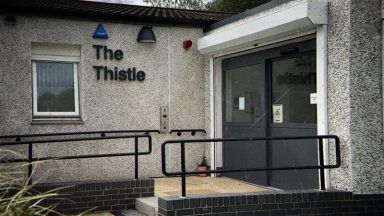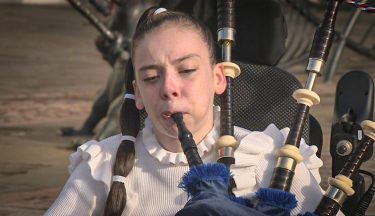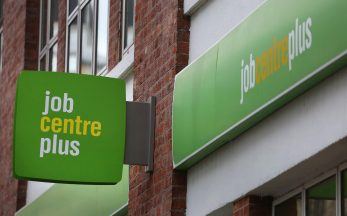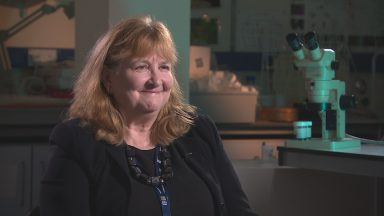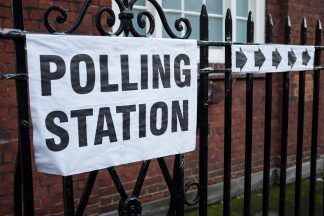Standing in the middle of a swing park in Glasgow’s Penilee takes Jordan Robertson back to one of the toughest periods of his life.
“Last time I was in this park I actually got stabbed in the head with a bottle, ended up in hospital,” he remembers.
Throughout his life, Jordan, 32, has found himself on both sides of knife crime. Having turned his life around following jail sentences for violent offences, including attempted murder, he is reflective about his time involved in gangs, and the challenges young people from deprived areas face while trying to avoid them.
He spoke with Scotland Tonight about how he became embroiled in gang violence and how his worry that access to violent content and the glorification of gang culture on social media is making it harder than ever to escape.
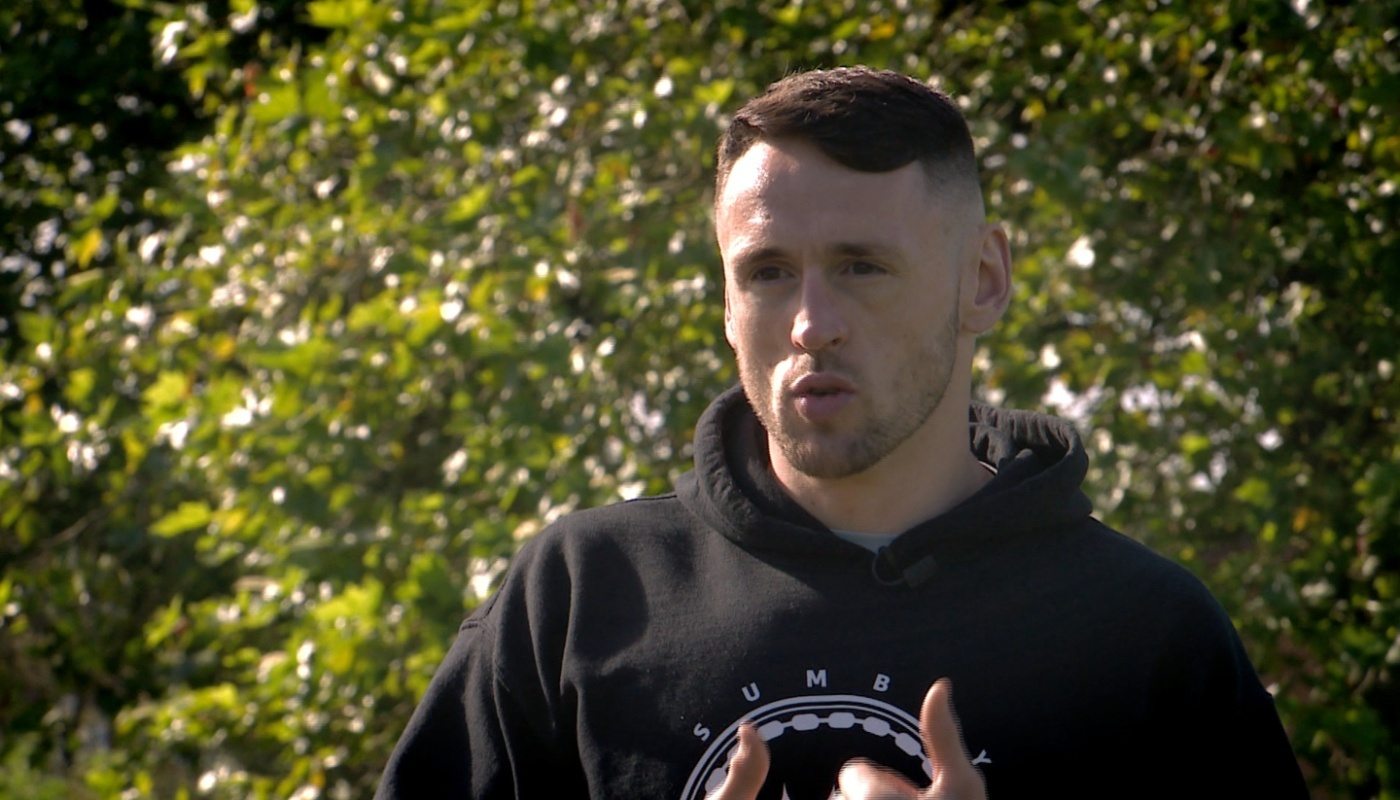 STV News
STV News“It was like a comfort blanket to me, you know?” he said of how he felt while carrying a knife. “It made me feel comfy and I don’t know why when I think about it now. I just had pure anxiety if I didn’t have it.”
He added: “It feels like a past life, it’s pretty strange.”
He believes social deprivation and mental health play a large role in the escalation of violence, particularly on poorer communities.
He said: “They’re quite unpredictable places, the schemes, because you’re in poor areas, you’ve got a lot of damaged people taking a lot of trauma out from households, from younger life.
“So that thing where I talk about the knife being an insurance policy. I’d say that’s very much still common these days.”
Jordan says one of the main reasons young people get into trouble is because they lack aspiration.
“When I was growing up, the biggest entrepreneur in the area was the person that sold the most drugs. The most respected was the person that stabbed the most people. That’s who we were looking up to because they had the respect. They didn’t get bothered.”
Nowadays, he feels there’s an added factor for kids to contend with – the exposure to violent content online.
He said: “You get drill music that’s quite popular these days. All that is about is stabbing people with the gang stuff, especially in London.
“It’s just about what murders. It’s all the kind of the the vocabulary they use, a lot of young people listen to that.”
Now, Jordan is two years sober, and he spends his time creating documentaries and online content. With his life of crime behind him he admits for many it can be difficult to “break away from the pack”.
“Very rarely, there’s one person going, everybody follows. There’s usually one who breaks away and gets outcast.”
He added: “You usually find solace with people that are also in the same position. And when you’re in that kind of damaged peer group, it’s sad to say, the collective mentality usually results in negative behaviour”
‘Further and more serious violence’
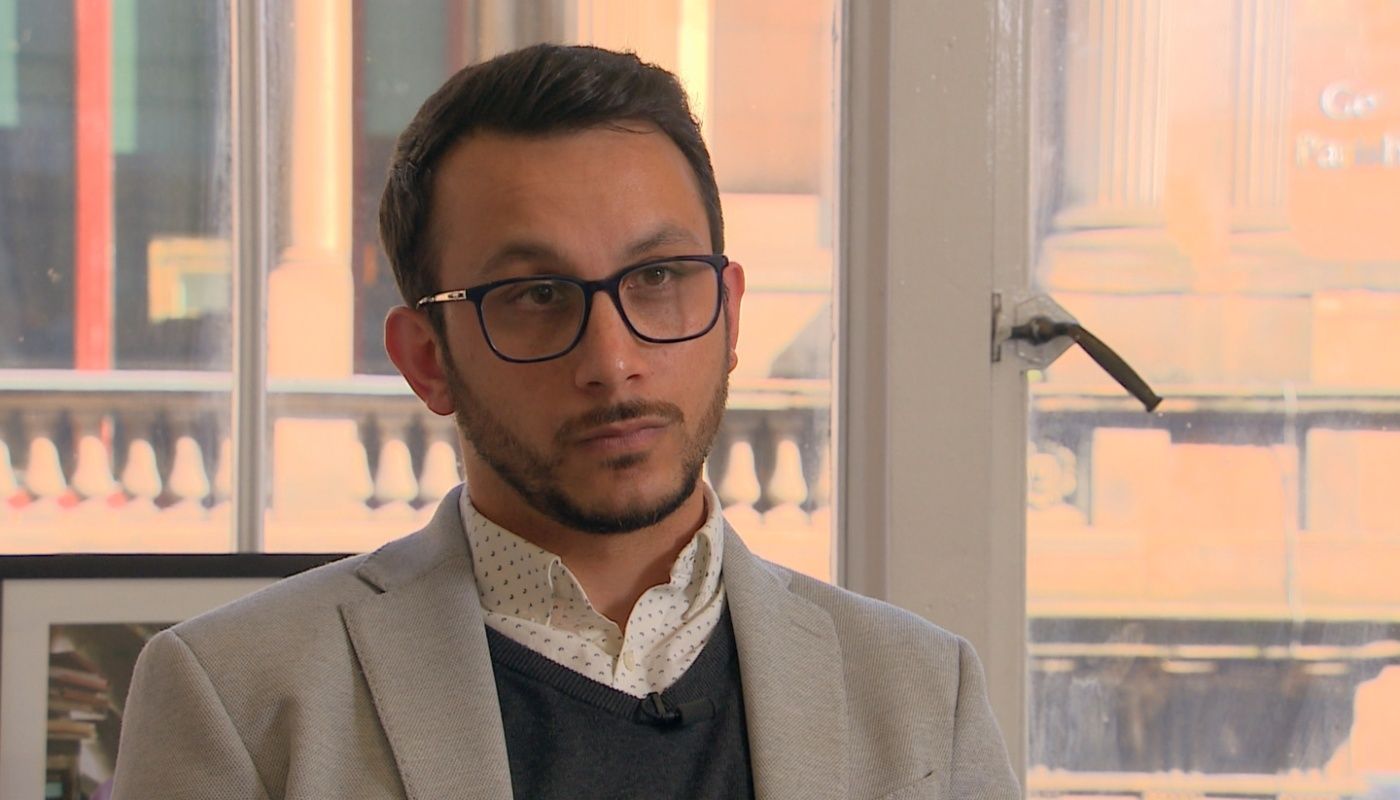 STV News
STV NewsJordan’s story is all too familiar to The Violence Reduction Unit.
Launched in 2005 to tackle the problem of knife crime, the organisation’s the pioneering work has been recognised internationally for its approach violence as a public health issue.
Jimmy Paul has been head of the unit for a year and admits behaviour among school-aged children is generally getting worse – and social media may go some way to explaining it.
He told Scotland Tonight: “We’ve spoken to children all over Scotland, in schools and they’ve shared their concerns over accessing images of violence and videos of violence, concerns over how social media might be used to fuel acts of violence and meeting to fight.
Combined with the impacts of Covid, the cost-of-living-crisis, and austerity – Mr Paul worries about what the future may hold.
“We are hearing from teachers, police officers, social workers, that they are seeing more of this. And my concern over a lack of investment in Youth Services or the role of social media not handled correctly is that it might result in further and more serious violence.”
When asked what his message is to families frightened by the rise in youth violence, he said: “Their concerns are valid and everyone feels, and individuals and communities feel violence differently and it’s not nice to be concerned about your safety or the safety of children around you.
“We will continue to work diligently to understand the root causes and deliver improvements and continue to reduce violence.”
‘We do have more work to do’
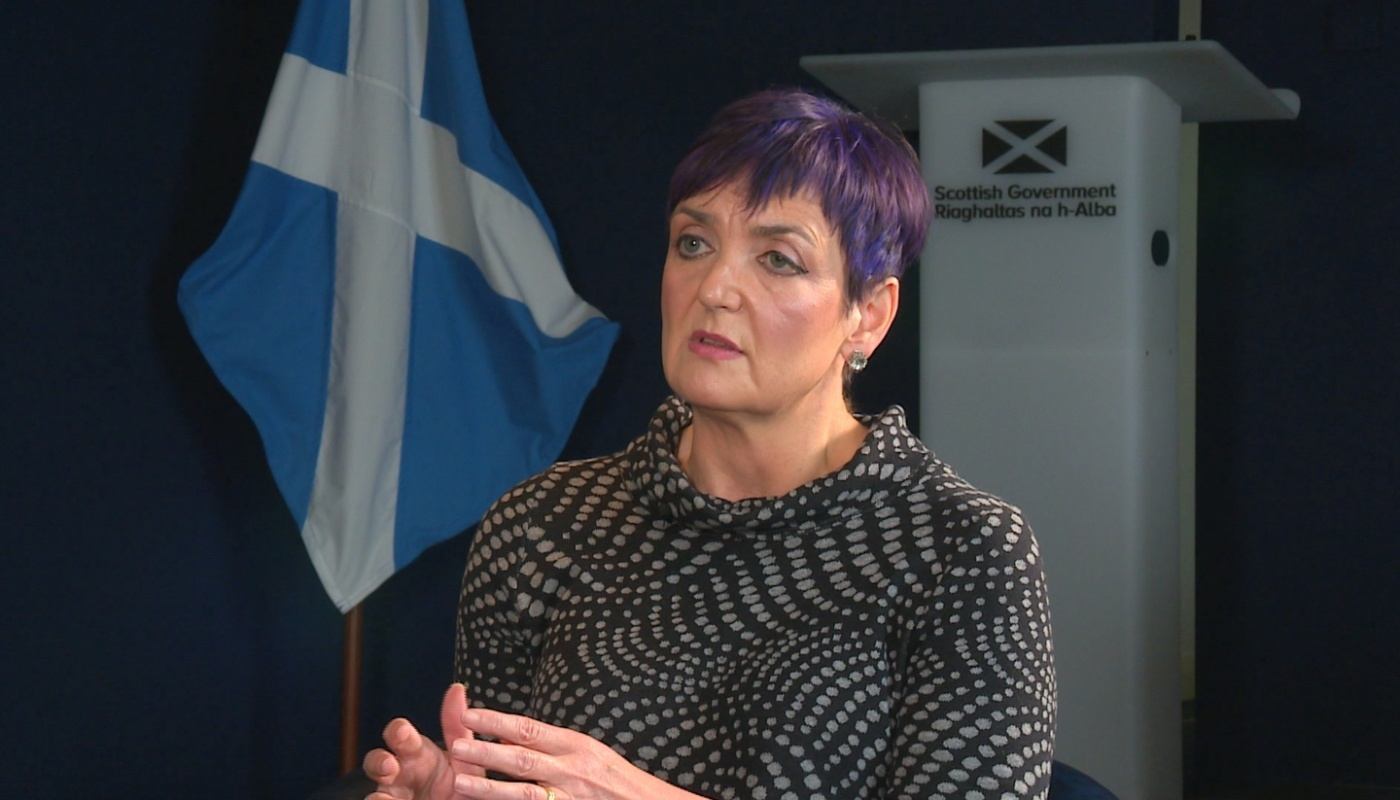 STV News
STV NewsThe acknowledgement of a rise in youth crime is also recognised by Scotland’s justice and home affairs secretary Angela Constance.
She told Scotland Tonight: “All of our children deserve to grow up feeling safe, loved and supported. We are extremely aware of recent concerns, recent cases, and while we have seen an increase in particular crimes and particularly in relation to weapons over the past year, the overall trend is that there is a long term reduction in violence.”
She added: “So I very much recognise that we do have more work to do and that’s why the Scottish Government will continue to invest in prevention because first and foremost we want young people not to pick up knives or offensive weapons in the first place.”
However, between 2016 to 2019 Scotland saw a decrease in funding for youth services of around £11m – something campaigners say has fuelled the rise in youth crime.
Ms Constance said: “So we do need to make long term investments and one very good example of our long term investment in youth work, diversion activities and family support is through the cash back for communities scheme. That is money that our coaches and prosecutors very successfully extract from criminals through the proceeds of crime legislation.
“Again, over the past decade or so, £130,000,000 has benefited 1.3 million children and young people in this country.
“There is also our violence prevention framework, the first of its kind, which again sees investment of £4m and that is supporting organisations like the Violence Reduction Unit, Youth Link Scotland and medics against violence and these organisations, which, along with the work that education Scotland does are reaching thousands of children and young people in terms of that violence prevention work.”
On the problem of social media, she said: “So the first Minister has made very strenuous representations to social media companies and as a government we will continue to engage with the UK Government.”
However, she insisted it remains the UK Government who have the “the powers to address this”.
Follow STV News on WhatsApp
Scan the QR code on your mobile device for all the latest news from around the country


